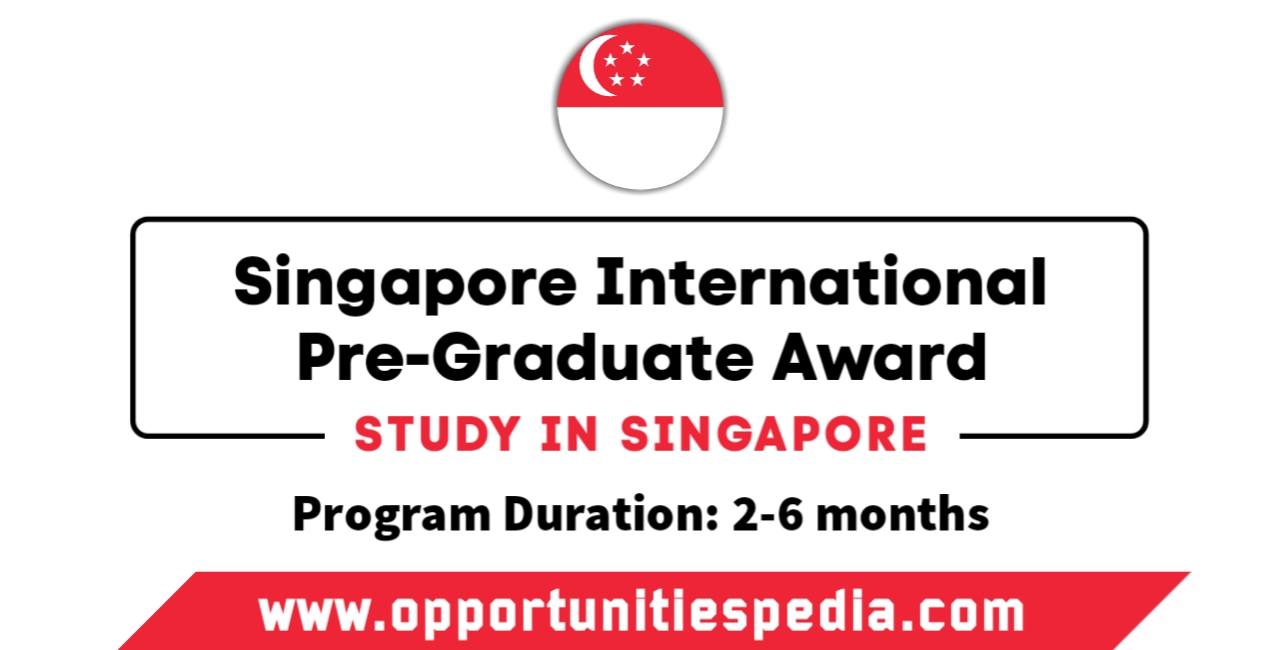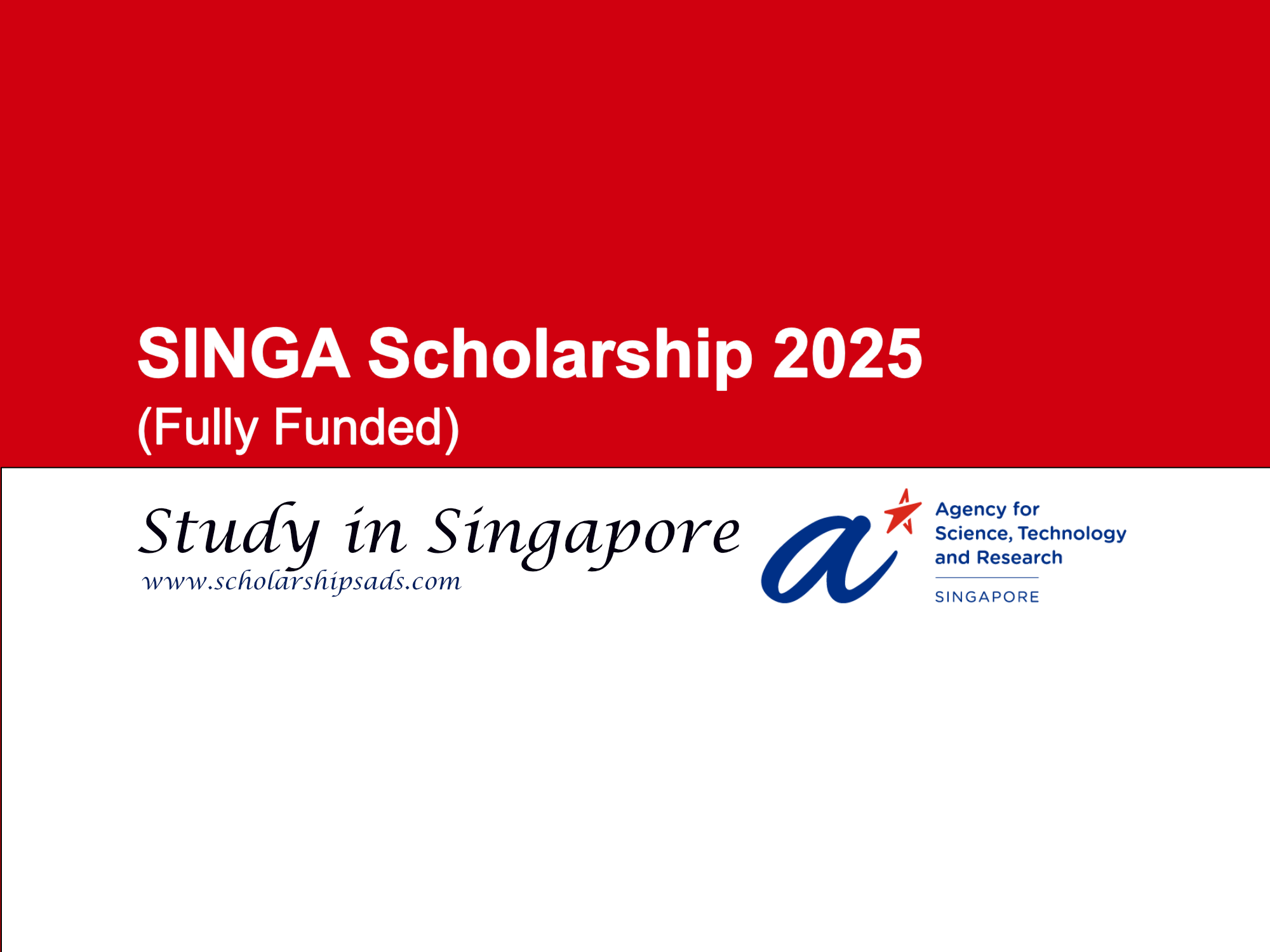Your Guide to Master's Scholarships in Singapore for 2025
Scholarship advisor helping students find funding opportunities worldwide.

Scholarship advisor helping students find funding opportunities worldwide.

Singapore is a premier destination for higher education, attracting students worldwide. The country boasts world-class universities and a thriving research environment. For those aspiring to pursue a Master's degree, numerous scholarship opportunities are available for the 2025 academic year. These scholarships can significantly reduce the financial burden of studying abroad.
Several prestigious scholarships are available for international students looking to pursue a Master's degree in Singapore. These scholarships are offered by the government, universities, and other organizations. Understanding these opportunities is the first step towards securing funding for your studies.
The Singapore International Graduate Award (SINGA) is a fully-funded scholarship. It supports international students pursuing PhD degrees in science and engineering. A collaboration between the Agency for Science, Technology and Research (A*STAR) and various Singaporean universities, it is a highly competitive award.
SINGA is open to all nationalities. It covers tuition fees, provides a monthly stipend, and offers settling-in and airfare allowances. The program emphasizes research and is ideal for students aiming for a doctoral degree. The SINGA program supports studies at top universities like NUS, NTU, SMU and SUTD.

Besides SINGA, many universities in Singapore offer their own scholarships. These awards vary in terms of eligibility, funding amount, and application process. For example, Nanyang Technological University (NTU) offers the NTU President's Scholarship. These scholarships can be fully or partially funded. Always check the specific university's website for detailed information.
Master's scholarships in Singapore come in different forms. It’s important to understand the distinctions between them to choose the best option. Funding can be categorized into fully funded and partial funding options.
Fully funded scholarships cover all major expenses. This often includes tuition fees, living costs, airfare, and other allowances. The SINGA scholarship is a prime example of a fully funded opportunity. These are highly competitive but offer the most comprehensive financial support.
Partial funding scholarships cover a portion of the expenses. This might include tuition fees only or a stipend to help with living costs. These scholarships can be combined with other funding sources. Many university-specific scholarships fall into this category. Education Future International Scholarship is an example of a partial scholarship.
Each scholarship has specific eligibility requirements. Understanding these criteria is crucial for a successful application. Generally, scholarships consider academic qualifications, English language proficiency, and nationality.
Most scholarships require applicants to have a strong academic record. A bachelor's degree is typically a minimum requirement for Master's programs. Some scholarships might also consider your GPA and relevant coursework. For PhD programs, a Master's degree may be required.
Since English is the primary language of instruction, applicants must demonstrate proficiency. This is usually done through standardized tests like TOEFL or IELTS. Some universities may have their own language requirements. The SINGA scholarship does not require IELTS/TOEFL.
Some scholarships are open to all nationalities. However, others may be restricted to specific regions or countries. Be sure to check the eligibility criteria carefully. For instance, the Chief Minister's Overseas Scholarship Scheme is specifically for minority students from Telangana.
The application process for scholarships can be rigorous. It requires careful planning and attention to detail. Understanding the required documents, recommendation letters, and deadlines is vital.
Typical documents include academic transcripts, degree certificates, passport copies, and a recent photograph. Some scholarships may also require a personal statement or research proposal. Always ensure your documents are translated into English if they are in another language. The SINGA scholarship requires a passport, transcripts, and certificates.
Recommendation letters from professors or supervisors are often necessary. These letters should highlight your academic abilities and research potential. Choose referees who know you well and can provide strong endorsements. It is important to give your referees enough time to complete their recommendations.
Scholarship deadlines vary. Many applications for the 2025 intake close in late 2024 or early 2025. Start early to avoid missing deadlines. The SINGA scholarship deadline is usually around June or December.
Finding the right scholarship requires research and strategic planning. Utilizing online databases and following application tips can significantly boost your chances.
Several online databases list scholarships for international students. Websites like WeMakeScholars and ScholarshipsAds are useful resources. These platforms allow you to filter scholarships based on your field of study, nationality, and degree level.
A strong application is key to securing a scholarship. Begin by carefully reviewing the requirements. Tailor your application to each scholarship. Highlight your achievements and research interests. Proofread your application thoroughly before submitting.
Singapore is home to several world-renowned universities. Many of these institutions offer their own scholarships. Knowing the top universities can help you narrow your search.
The National University of Singapore (NUS) is one of Asia's top universities. It offers a wide range of Master's programs and various scholarships. NUS is known for its strong research focus and innovative programs.
Nanyang Technological University (NTU) is another leading institution in Singapore. NTU provides numerous scholarships for international students, including the NTU President's Scholarship. NTU is recognized for its engineering and technology programs.
Singapore Management University (SMU) is a premier business and management school. SMU offers scholarships for its Master's programs. The university is known for its interactive teaching and industry connections.
The Singapore University of Technology and Design (SUTD) focuses on design and technology. It provides scholarships for Master's students. SUTD emphasizes hands-on learning and innovation.
The application process can be complex, especially for international students. Understanding the portals and seeking guidance is crucial.
Each university and scholarship provider has its own application portal. Familiarize yourself with the portal's interface and instructions. The SINGA application portal is an example of an online system.
International students should start their applications early. Pay close attention to visa requirements and documentation. Seek assistance from international student offices for guidance. It's beneficial to connect with current students for advice.
Once you've secured a scholarship, focus on preparing for your studies in Singapore. This involves understanding visa requirements, accommodation options, and the cost of living.
International students need a valid student visa to study in Singapore. The application process can take time. It is essential to begin this process as soon as you receive an offer.
Singapore offers various accommodation options, including on-campus dormitories and off-campus apartments. On-campus housing is often limited, especially for graduate students. Consider your budget and preferences when choosing accommodation.
The cost of living in Singapore can be relatively high. It's essential to budget for expenses like food, transport, and personal items. A*STAR estimates the cost of living to be between S$1,400 to S$2,000 per month.
Key Takeaways:
This guide provides a comprehensive overview of Master's scholarship opportunities in Singapore for 2025. By researching, preparing, and applying strategically, you can increase your chances of securing funding and pursuing your academic goals in this vibrant country. You can also explore other scholarship options in nearby countries like Taiwan, Australia, South Korea, New Zealand, and China.
— in Scholarships
— in Scholarships
— in Scholarships
— in Scholarships
— in Scholarships